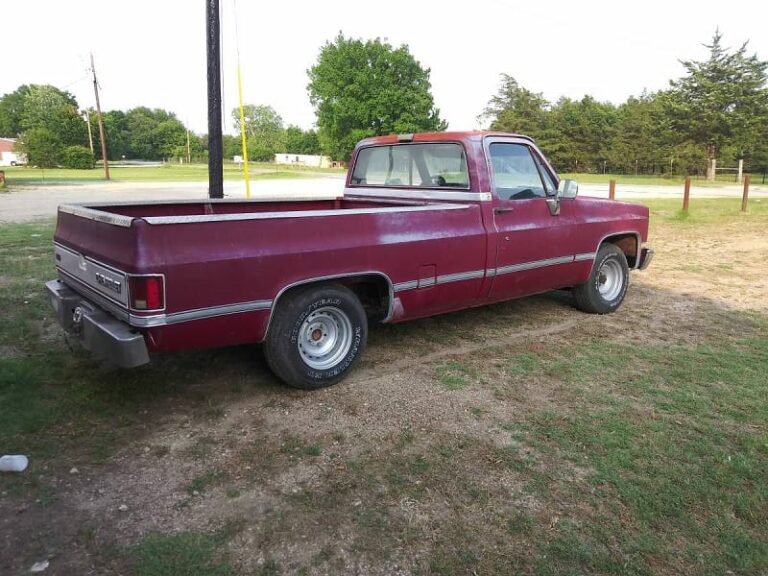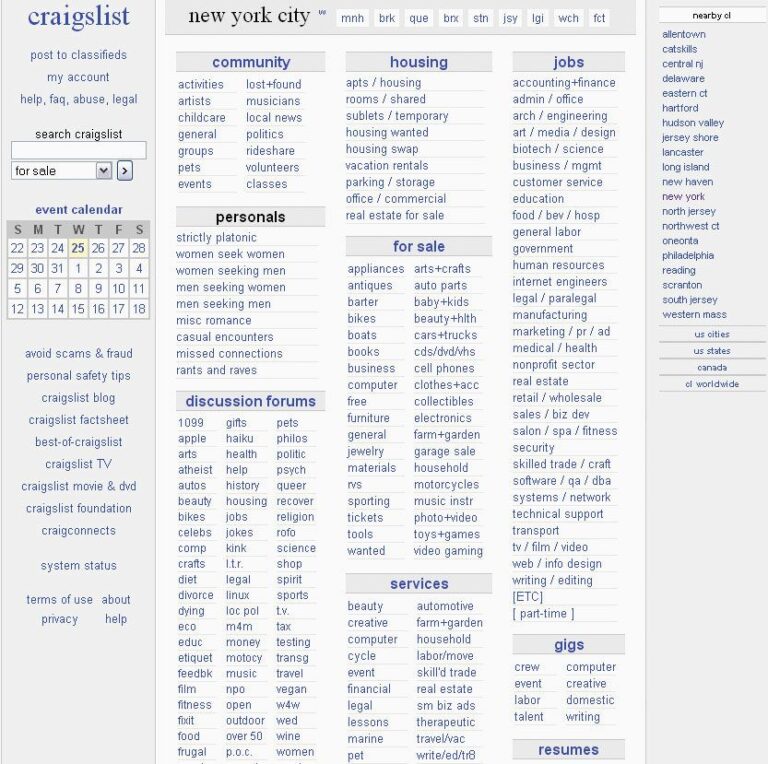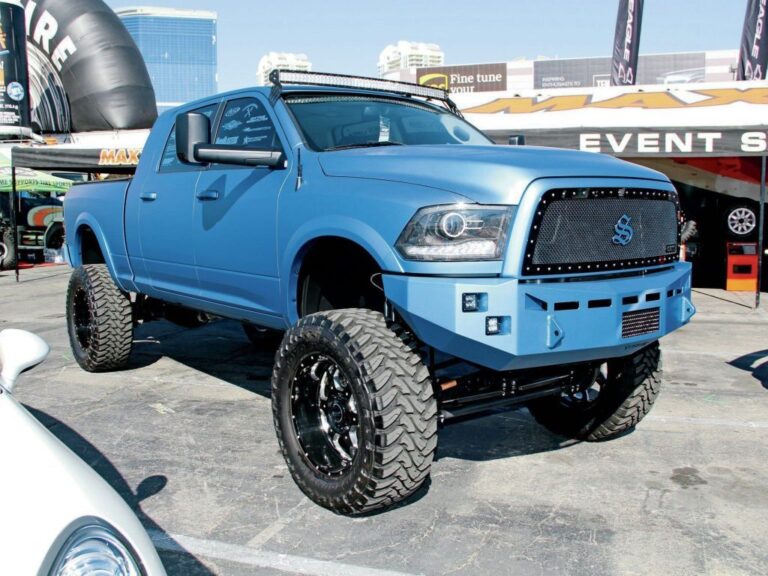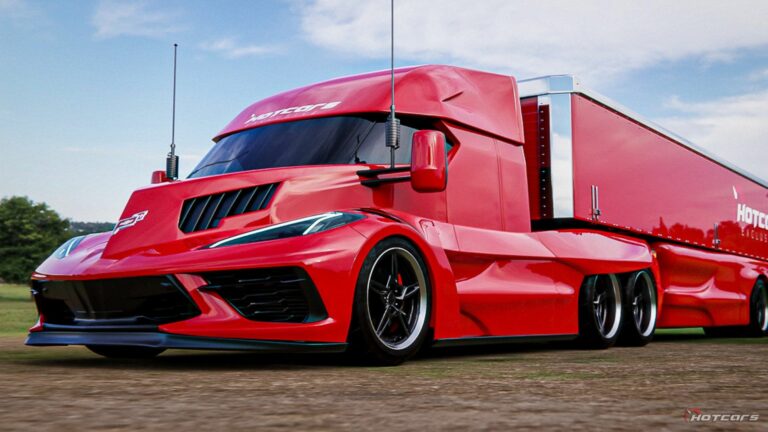Pickup Trucks In Spain: The Ultimate Guide to a Versatile Workhorse and Lifestyle Vehicle
Pickup Trucks In Spain: The Ultimate Guide to a Versatile Workhorse and Lifestyle Vehicle cars.truckstrend.com
Once primarily confined to the rugged terrains of farms and construction sites, pickup trucks in Spain are experiencing a remarkable evolution. No longer just a utilitarian workhorse, these robust vehicles are increasingly finding their place as versatile lifestyle companions, catering to a diverse range of needs from adventurous outdoor enthusiasts to savvy business owners. Understanding the unique market dynamics, legal classifications, and practical considerations is key to appreciating the growing appeal of pickup trucks across the Iberian Peninsula.
This comprehensive guide delves into every facet of pickup trucks in Spain, offering insights into their historical journey, regulatory landscape, popular models, and the many benefits and challenges associated with their ownership. Whether you’re a professional seeking a reliable commercial vehicle or an individual looking for a capable and adventurous ride, this article provides the essential information to navigate the Spanish pickup market.
Pickup Trucks In Spain: The Ultimate Guide to a Versatile Workhorse and Lifestyle Vehicle
The Evolving Landscape of Pickup Trucks in Spain: From Workhorse to Lifestyle Vehicle
For decades, the image of a pickup truck in Spain was inextricably linked to rural life, agriculture, and heavy-duty industrial work. They were seen as purely functional vehicles, often with basic amenities, designed for durability and hauling capacity above all else. Brands like Ebro, Santana, and later, imported Japanese models, served this niche market faithfully.
However, the 21st century has ushered in a significant transformation. Influenced by global trends, particularly from North America and Australia, where pickups (or "utes") have long been a cultural icon, Spanish consumers are discovering the multifaceted appeal of these vehicles. Modern pickups now boast sophisticated interiors, advanced safety features, comfortable suspensions, and powerful engines, blurring the lines between commercial utility and passenger car luxury.
This shift has created a dual-purpose appeal. For businesses, the pickup remains an indispensable tool, offering unmatched payload and towing capabilities for tradespeople, farmers, and logistics companies. But for individuals, it represents freedom – the ability to transport bikes, surfboards, camping gear, or even small boats, venturing off the beaten path with confidence. This evolving perception is driving a steady increase in pickup sales, marking their transition from a niche work vehicle to a significant player in the broader Spanish automotive market.
Navigating the Legal and Regulatory Framework for Pickups in Spain: The Crucial "Vehículo Comercial Ligero" Distinction
One of the most critical aspects for any potential pickup owner in Spain is understanding its legal classification. Unlike many other countries where pickups are often treated similarly to SUVs, in Spain, they are predominantly classified as "Vehículo Comercial Ligero" (Light Commercial Vehicle), or sometimes specifically as "Camión Abierto" (Open Truck) or "Furgón" (Van) depending on the body type and payload. This classification carries significant implications that differentiate them from passenger cars ("Turismos").

Speed Limits: This is perhaps the most impactful difference. For light commercial vehicles (including most pickups under 3,500 kg GVW), the standard speed limits are generally lower than for passenger cars:
- Motorways (Autopistas/Autovías): 90 km/h (vs. 120 km/h for passenger cars)
- Conventional Roads: 80 km/h (vs. 90 km/h for passenger cars)
- Urban Areas: 50 km/h on two or more lanes per direction, 30 km/h on single-lane roads, 20 km/h on single-lane roads with shared pedestrian/vehicle space.
- These limits must be strictly adhered to, as traffic cameras and enforcement are common.
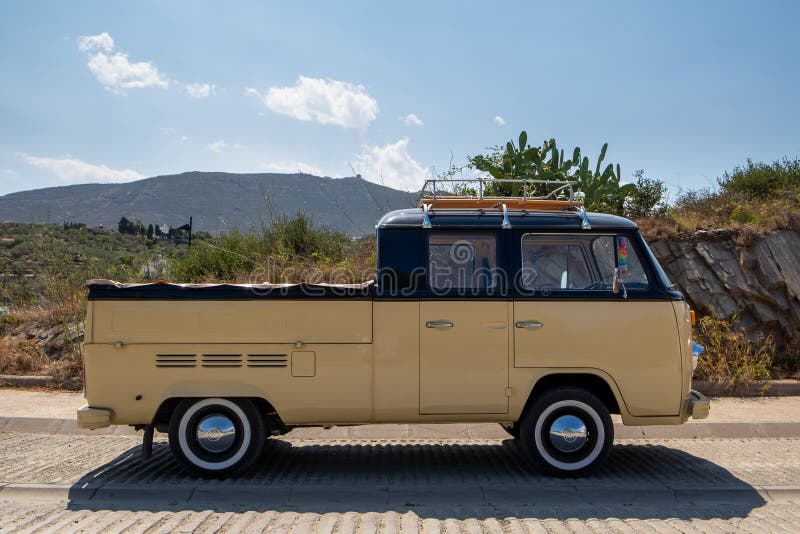
-
ITV (Inspección Técnica de Vehículos – Technical Vehicle Inspection): Pickups, as commercial vehicles, are subject to more frequent ITV inspections:

- Up to 2 years old: Exempt
- 2 to 6 years old: Every 2 years
- 6 to 10 years old: Annually
- Over 10 years old: Every 6 months
- This is significantly more frequent than passenger cars, which typically have their first ITV at 4 years, then every 2 years until 10, and annually thereafter.
-
Tax Implications (for Businesses): For self-employed individuals (autónomos) or companies, owning a pickup truck classified as a commercial vehicle can offer significant tax advantages:
- VAT Deductibility: The 21% VAT (IVA) paid on the purchase of the vehicle, fuel, maintenance, and related expenses can often be fully or partially deducted, provided the vehicle is used exclusively or predominantly for business activities. This is a major incentive.
- Depreciation: The vehicle’s value can be depreciated over its useful life, reducing taxable income.
- Road Tax (IVTM – Impuesto sobre Vehículos de Tracción Mecánica): While still applicable, the classification can sometimes affect the calculation, though this varies by municipality.
-
Driving License: For most standard pickups (up to 3,500 kg GVW), a standard B driving license (the common car license) is sufficient. For heavier-duty pickups or those exceeding this GVW (less common for typical consumer models), a C1 or C license might be required.
-
Urban Restrictions: While currently less impacted than some older vans, future low-emission zones (ZBE – Zonas de Bajas Emisiones) in Spanish cities may increasingly restrict access for older or less environmentally friendly commercial vehicles, including pickups. It’s crucial to check the vehicle’s environmental label (etiqueta ambiental) from the DGT.
Understanding these legal nuances is paramount before purchasing a pickup in Spain, as they directly impact running costs and daily usability.
Key Players: Popular Pickup Models Dominating the Spanish Market
The Spanish pickup market, while smaller than some other segments, is highly competitive, dominated by robust and reliable models from well-established global manufacturers. Here are some of the most popular choices:
- Toyota Hilux: Renowned globally for its legendary reliability and durability, the Hilux is a top seller in Spain. It’s often the go-to choice for those needing a dependable workhorse capable of tackling the toughest conditions, yet modern versions offer surprising comfort and technology for daily driving.
- Ford Ranger: Consistently a strong performer, the Ranger blends rugged capability with a more refined, SUV-like driving experience. It offers a wide range of trims, from basic work trucks to luxurious off-road-ready versions, appealing to both commercial and lifestyle buyers. The powerful Raptor variant is particularly popular among enthusiasts.
- Mitsubishi L200 (or Triton in some markets): With a strong heritage in off-roading and a reputation for robustness, the L200 is a formidable contender. It’s known for its Super Select 4WD system, offering versatile traction options, making it ideal for varied terrains.
- Isuzu D-Max: A no-nonsense, highly capable pickup, the D-Max is prized for its commercial utility and strong build quality. It’s often favored by professionals who need a dependable tool that can withstand heavy use, while newer models have significantly improved interior comfort and safety features.
- SsangYong Musso: Offering a compelling value proposition, the Musso (and its closed-body variant, the Rexton Sports) provides generous space, a comfortable ride, and respectable towing/payload capacities at a more accessible price point, appealing to buyers looking for a blend of utility and affordability.
- Nissan Navara: While production for the European market ceased in 2021, the Navara remains a significant presence in the used market. It was highly regarded for its blend of comfort, power, and off-road capability, and many examples continue to serve Spanish owners reliably.
These models typically offer various cab configurations (single cab, extended cab, double cab), engine options (mostly diesel, though petrol and hybrid options are emerging globally), and trim levels, allowing buyers to tailor the vehicle to their specific needs.
Benefits Beyond the Bed: Why a Pickup Might Be Your Next Vehicle in Spain
The appeal of pickup trucks in Spain extends far beyond their primary function of hauling goods. Their unique attributes offer a compelling package for a diverse range of users:
- Unmatched Versatility: This is arguably the biggest selling point. A pickup seamlessly transitions from a heavy-duty work vehicle during the week – carrying tools, materials, or equipment – to an adventurous leisure vehicle on weekends, transporting bikes, kayaks, camping gear, or even serving as a base for outdoor excursions.
- Superior Payload and Towing Capacity: For those in construction, agriculture, landscaping, or any profession requiring the transport of heavy items, a pickup is indispensable. Modern pickups can often carry over a tonne in their bed and tow trailers weighing 3,500 kg, making them superior to most vans or SUVs for such tasks.
- Robust Off-Road Capability: With high ground clearance, durable suspension, and advanced 4×4 systems, pickups are perfectly suited for navigating challenging Spanish terrains, from unpaved rural roads to mountain trails. This makes them ideal for outdoor sports, exploring remote areas, or accessing difficult job sites.
- Tax Advantages for Businesses: As highlighted in the legal section, the ability to deduct VAT and depreciate the vehicle’s value significantly reduces the total cost of ownership for self-employed individuals and companies, making pickups a financially attractive option.
- Durability and Longevity: Built to withstand demanding conditions, pickups are engineered for resilience. Their robust chassis and heavy-duty components generally translate to a long service life and good residual value, especially for popular models.
- Safety Features: Modern pickups come equipped with an array of advanced safety technologies, including multiple airbags, stability control, traction control, blind-spot monitoring, adaptive cruise control, and automatic emergency braking, making them as safe as many passenger cars.
Challenges and Considerations: What to Know Before Buying a Pickup in Spain
While the benefits are numerous, potential buyers should also be aware of the practical challenges and considerations associated with owning a pickup truck in Spain:
- Size and Maneuverability: Pickups are large vehicles. Their length and turning radius can make navigating narrow city streets, crowded urban parking lots, and underground garages challenging. Parking can be particularly difficult in older Spanish towns with limited space.
- Fuel Consumption: Due to their size, weight, and often powerful engines, pickups generally have higher fuel consumption compared to smaller passenger cars or even some SUVs. While diesel engines are efficient, expect higher running costs on fuel.
- Speed Limits: The lower speed limits for commercial vehicles (90 km/h on motorways) can be a significant adjustment for drivers accustomed to passenger car speeds. This affects journey times on longer trips.
- ITV Frequency: The more frequent technical inspections (ITV) mean more regular appointments and potential costs for maintenance to pass the inspections.
- Urban Access Restrictions: As environmental regulations tighten, older pickups without the appropriate DGT environmental label (e.g., B, C, ECO, or CERO) may face increasing restrictions in low-emission zones (ZBEs) in major cities like Madrid and Barcelona.
- Insurance Costs: Insurance premiums for pickups can sometimes be higher than for comparable passenger cars, as they are often classified as commercial vehicles and may be perceived as higher risk due to their use. It’s crucial to get quotes specific to your intended use (private vs. commercial).
- Image and Perception: While evolving, some people in Spain still primarily view pickups as work vehicles, which might not align with everyone’s desired image.
A Buyer’s Guide to Pickup Trucks in Spain: Making an Informed Decision
Purchasing a pickup truck in Spain requires careful consideration to ensure it meets your specific needs and complies with local regulations.
-
Define Your Needs:
- Purpose: Primarily work, leisure, or a mix? This dictates payload, towing, off-road capability, and interior comfort priorities.
- Cab Type: Single Cab (max cargo), Extended Cab (small rear seats), Double Cab (four full doors, more passenger comfort).
- Usage Environment: Mostly urban, rural, highway, or off-road?
- Budget: Not just purchase price, but also running costs (fuel, insurance, ITV, maintenance).
-
New vs. Used:
- New: Offers the latest technology, full warranty, and customizable options. Dealerships can guide you through financing and registration.
- Used: Can be significantly more affordable. Reputable used car dealerships or online platforms (e.g., AutoScout24, Coches.net) are good starting points. Always get a pre-purchase inspection from an independent mechanic.
-
Research Models: Compare specifications, features, and reviews of the popular models mentioned earlier. Consider their reputation for reliability, fuel efficiency, and available technologies.
-
Test Drive Extensively: Drive the chosen model under various conditions – city traffic, highways, and if possible, some unpaved roads. Pay attention to handling, ride comfort, engine performance, and visibility. Crucially, test parking maneuvers.
-
Understand Financing and Insurance:
- Financing: Dealerships offer financing plans, or you can explore options with banks.
- Insurance: Obtain quotes from several insurers. Be transparent about your intended use (private vs. commercial) as this affects coverage and premiums. Ensure the policy covers your specific needs, including breakdown assistance and potential off-road use if applicable.
-
Consider Accessories: Many pickup owners customize their vehicles. Popular accessories include:
- Hardtops/Canopies: For secure, weatherproof storage in the bed.
- Bed Liners: Protect the bed from scratches and dents.
- Roll Bars/Sports Bars: For aesthetics and sometimes mounting lights.
- Tow Bars: Essential for towing trailers.
- Off-Road Modifications: Lift kits, upgraded tires, winches (if planning serious off-roading).
-
Environmental Label (Etiqueta Ambiental): Ensure the vehicle has a DGT environmental label (B, C, ECO, or CERO) that allows it access to the areas you plan to drive in, especially in urban centers with low-emission zones.
By following these steps, you can make an informed decision and choose a pickup truck that perfectly fits your lifestyle and professional requirements in Spain.
Pickup Truck Price Table in Spain (Estimated Starting Prices – 2024)
Prices are highly dependent on trim level, engine, transmission, and optional extras. The figures below represent estimated starting prices for base models (Double Cab, 4×4 unless specified) and are subject to change due to market fluctuations, taxes, and manufacturer promotions. Always consult official dealerships for the most accurate and up-to-date pricing.
| Model | Estimated Starting Price (EUR) | Key Engine Options (Typical) | Drivetrain (Common) | Max Payload (kg, Est.) | Max Towing Capacity (kg, Est.) | Key Feature Highlight | Target Use |
|---|---|---|---|---|---|---|---|
| Toyota Hilux | €35,000 – €38,000 | 2.4L D-4D (150hp), 2.8L D-4D (204hp) | 4×4 | 1,000 – 1,100 | 3,500 | Legendary reliability, robust build, high resale value | Work, Mixed, Adventure |
| Ford Ranger | €36,000 – €39,000 | 2.0L EcoBlue (170/205hp), 3.0L V6 EcoBlue (240hp) | 4×4 | 950 – 1,050 | 3,500 | Wide trim range, comfortable ride, powerful engine options | Mixed, Leisure, Work |
| Mitsubishi L200 | €33,000 – €36,000 | 2.2L DI-D (150hp) | 4×4 (Super Select II) | 1,000 – 1,080 | 3,500 | Super Select 4WD system, good off-road capability | Work, Mixed |
| Isuzu D-Max | €32,000 – €35,000 | 1.9L Ddi (164hp) | 4×4 | 1,000 – 1,100 | 3,500 | Uncompromising durability, strong work ethic, value | Work, Mixed |
| SsangYong Musso | €29,000 – €32,000 | 2.2L e-XDi (181hp) | 4×4 | 1,000 – 1,090 | 3,500 | Excellent value, spacious interior, comfortable ride | Mixed, Work |
Note: Prices are for base Double Cab models, often excluding VAT for commercial vehicles or including VAT for private purchases. Actual transaction prices may vary significantly based on specific trim, options, and dealer negotiations.
Frequently Asked Questions (FAQ) about Pickup Trucks in Spain
Q1: What is the main difference between a pickup truck and an SUV in Spain from a legal perspective?
A1: The primary difference is their classification. Pickups are typically classified as "Vehículo Comercial Ligero" (Light Commercial Vehicle), whereas SUVs are "Turismo" (Passenger Car). This affects speed limits (lower for pickups), ITV frequency (more often for pickups), and potential tax advantages for businesses (VAT deductibility for pickups).
Q2: Can I drive a pickup truck in Spain with a standard B driving license?
A2: Yes, for most standard pickup trucks with a Gross Vehicle Weight (GVW) of up to 3,500 kg, a standard B driving license is sufficient. For heavier-duty pickups or those exceeding this weight, a C1 or C license might be required.
Q3: Are pickup trucks subject to different speed limits in Spain?
A3: Yes, generally. For light commercial vehicles (which includes most pickups), the speed limit on motorways is 90 km/h (compared to 120 km/h for passenger cars), and on conventional roads, it’s 80 km/h (compared to 90 km/h).
Q4: What are the tax advantages for businesses buying a pickup truck in Spain?
A4: For self-employed individuals (autónomos) or companies, pickups classified as commercial vehicles often allow for full or partial deduction of the 21% VAT (IVA) on the purchase price, fuel, and maintenance, provided the vehicle is used for business activities. They can also be depreciated for tax purposes.
Q5: Are pickups good for urban driving in Spain?
A5: Pickups can be challenging for urban driving in Spain due to their large size, which makes navigating narrow streets and finding parking difficult, especially in older city centers. However, their robust nature can be beneficial for traversing cobbled streets or areas with less maintained roads. Always check the DGT environmental label for access to Low Emission Zones (ZBEs).
Q6: How often do pickup trucks need to pass the ITV (Technical Vehicle Inspection) in Spain?
A6: Pickups, as commercial vehicles, have more frequent ITV inspections:
- Up to 2 years old: Exempt
- 2 to 6 years old: Every 2 years
- 6 to 10 years old: Annually
- Over 10 years old: Every 6 months
This is more frequent than passenger cars.
Q7: Is it mandatory to carry anything specific in a pickup truck in Spain, like reflective vests or warning triangles?
A7: Yes, like all vehicles in Spain, you must carry at least one reflective vest (preferably two) and two warning triangles (or the new V-16 flashing light device). A spare wheel or tire repair kit is also mandatory.
Conclusion: The Enduring Appeal and Future of Pickups in Spain
The journey of pickup trucks in Spain has been one of quiet evolution, transforming from an indispensable agricultural tool to a multifaceted vehicle capable of serving both rigorous commercial demands and adventurous lifestyle pursuits. Their unique blend of rugged capability, generous cargo capacity, and increasingly sophisticated comfort features makes them an attractive proposition for a growing segment of the Spanish population.
While navigating the specific legal and regulatory landscape – particularly the "Vehículo Comercial Ligero" classification – is crucial for any potential owner, the benefits of versatility, payload, and potential tax advantages for businesses often outweigh the challenges of size and speed limits. As vehicle electrification progresses and consumer preferences continue to diversify, the pickup truck’s role in Spain is set to become even more dynamic, promising a future where these robust machines continue to be a symbol of capability and freedom on Iberian roads.

